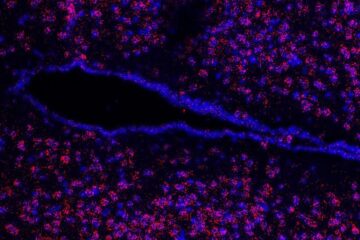Leading International Catalysis Researchers Convene at Universität Heidelberg

Leading international researchers in the field of molecular catalysis will gather at Heidelberg University on 12 June for the “Heidelberg Forum of Molecular Catalysis” (HFMC 2015).
The organisers expect approx. 400 participants in the high-profile symposium, which is held every two years, this year for the eighth time. Event co-hosts are the Institute of Organic Chemistry of Heidelberg University and BASF, which will be honouring an outstanding young researcher with the BASF Catalysis Award, endowed with 10,000 euros.
The symposium will focus on key research challenges and the latest findings from research in molecular catalysis. Three world-renowned experts in catalysis research will deliver the plenary lectures: Prof. Dr. Douglas W. Stephan of the University of Toronto (Canada), Prof. Dr. Paul Knochel of Ludwig Maximilians University of Munich and Prof. Dr. Paul Chirik of Princeton University (USA). The symposium will also feature approx. 100 posters submitted by attendees.
The recipient of the “BASF Catalysis Award 2015” is Dr. Andrew Ashley of the Imperial College London (Great Britain). The scientist (b. 1979) studied chemistry, earning his doctorate at the University of Oxford in 2006.
He also worked there as a postdoc before joining the Department of Chemistry at the Imperial College London in 2010. In London he led a research group in the field of inorganic synthesis and catalysis. In his award lecture, Dr. Ashley will discuss his innovative work in hydrogen activation using “frustrated Lewis pairs” and their use in catalytic hydrogenation.
“Catalysis represents one of the 21st century’s key future technologies in chemistry,” states Heidelberg chemist Prof. Dr. Oliver Trapp, who is jointly organising this year’s symposium with BASF. Catalysts enable the creation of new materials as well as agents and functional materials.
They accelerate chemical reactions, minimise energy consumption and prevent undesirable by-products and waste, thus optimising chemistry both ecologically and economically. As Prof. Trapp explains, molecular catalysts serve especially as customised “tools” and highly-specialised “synthesis machines” in atomic dimensions.
The “Heidelberg Forum of Molecular Catalysis” will be held on 12 June 2015 from 1 pm to 6 pm in the main lecture hall of the Chemistry lecture building (Im Neuenheimer Feld 252). Anyone interested is invited to attend.
Contact:
Prof. Dr. Oliver Trapp
Institute of Organic Chemistry
Phone: +49 6221 54-8470
trapp@oci.uni-heidelberg.de
Communications and Marketing
Press Office, phone: +49 6221 54-2311
presse@rektorat.uni-heidelberg
Media Contact
All latest news from the category: Event News
Newest articles

Roadmap to close the carbon cycle
A holistic approach to reach net-zero carbon emissions across the economy. A major approach to achieving net-zero carbon emissions relies on converting various parts of the economy, such as personal…

Cost-effective, high-capacity, and cyclable lithium-ion battery cathodes
Charge-recharge cycling of lithium-superrich iron oxide, a cost-effective and high-capacity cathode for new-generation lithium-ion batteries, can be greatly improved by doping with readily available mineral elements. The energy capacity and…

New regulator of eating behaviour identified
The rapidly escalating prevalence of overweight and obesity poses a significant medical challenge worldwide. In addition to people’s changing lifestyles, genetic factors also play a key role in the development…





















